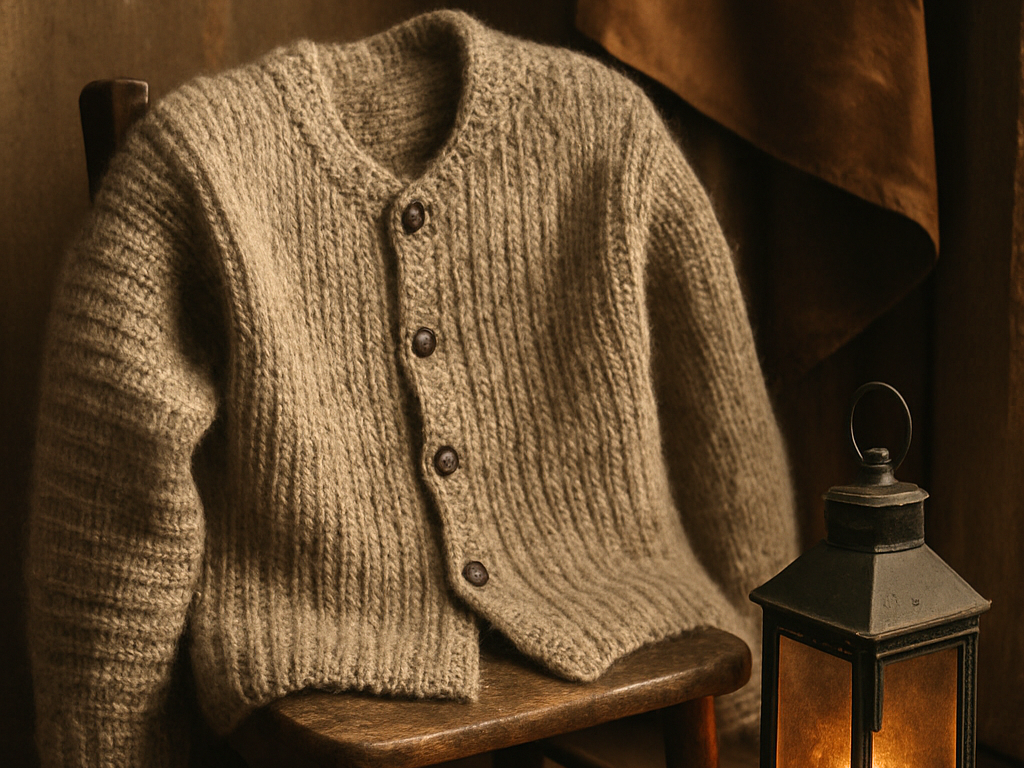#HistoryStitch: Colonial American Knitting – “Roundabouts” & Everyday Fashion around 1700

When we think of knitted jackets today, we might picture cozy cardigans or elegant outerwear. But in 17th–18th century New England, knitted garments had a very different role.
Settler women created "roundabouts" – cylindrical woolen jackets worn under heavy leather coats. These garments were not only practical and insulating, but also carried a social meaning in the everyday fashion of their time.
🧶 What were "Roundabouts"?
Shape: Simple, cylindrical jackets without complicated tailoring.
-
Material: Pure wool – warm, robust, and readily available.
-
Use: Worn under thick leather coats as an extra layer of insulation against New England's harsh winters.
Their plainness was highly functional – but it also reflected the colonial lifestyle, where practicality came before luxury.
✨ Patterns and Symbolism
The knitting patterns were usually straightforward:
-
Ribbing for elasticity and warmth.
-
Simple lace or eyelet stripes when yarn had to be saved.
But patterns were not only functional – they also served as status indicators:
-
Merchants preferred finer, plain versions.
-
Farmers and rural families used coarser, quickly made variants.
Thus, knitted clothing became a subtle marker of origin and social standing.
👩🌾 Knitting in Everyday Life
Knitting was a daily necessity:
-
Women provided clothing for the entire household.
-
Knitting was done by the fire, in groups, or even alongside fieldwork.
-
Wool was precious, so garments were often unraveled and re-knit.
This "slow crafting" wasn't a conscious lifestyle choice – it was survival. It highlights how deeply handcraft was connected to both community and resilience.
🏛️ Historical Artifacts
Today, original "roundabouts" can be admired at the Colonial Williamsburg Museum. They reveal details of materials, patterns, and construction – invaluable glimpses into the textile history of everyday life.
💡 My Conclusion:
The "roundabouts" remind us that knitting has always been more than a pastime. In colonial times, it was a tool for survival, a marker of social belonging, and a creative contribution made by women to their communities.
💬 Have you ever tried knitting with historical patterns?
Share your projects in our Facebook group!
#historymasche #strickenimtrend #maschenmitliebe #knittinghistory #heritagecrafts
Perhaps this historic perspective will inspire you to reimagine old patterns in modern projects – and bring a touch of history into your stitches.
Yours,
Kathrin 💛
Want to dive deeper into the world of stitches?
Explore my patterns, browse the blog, or join our community!
